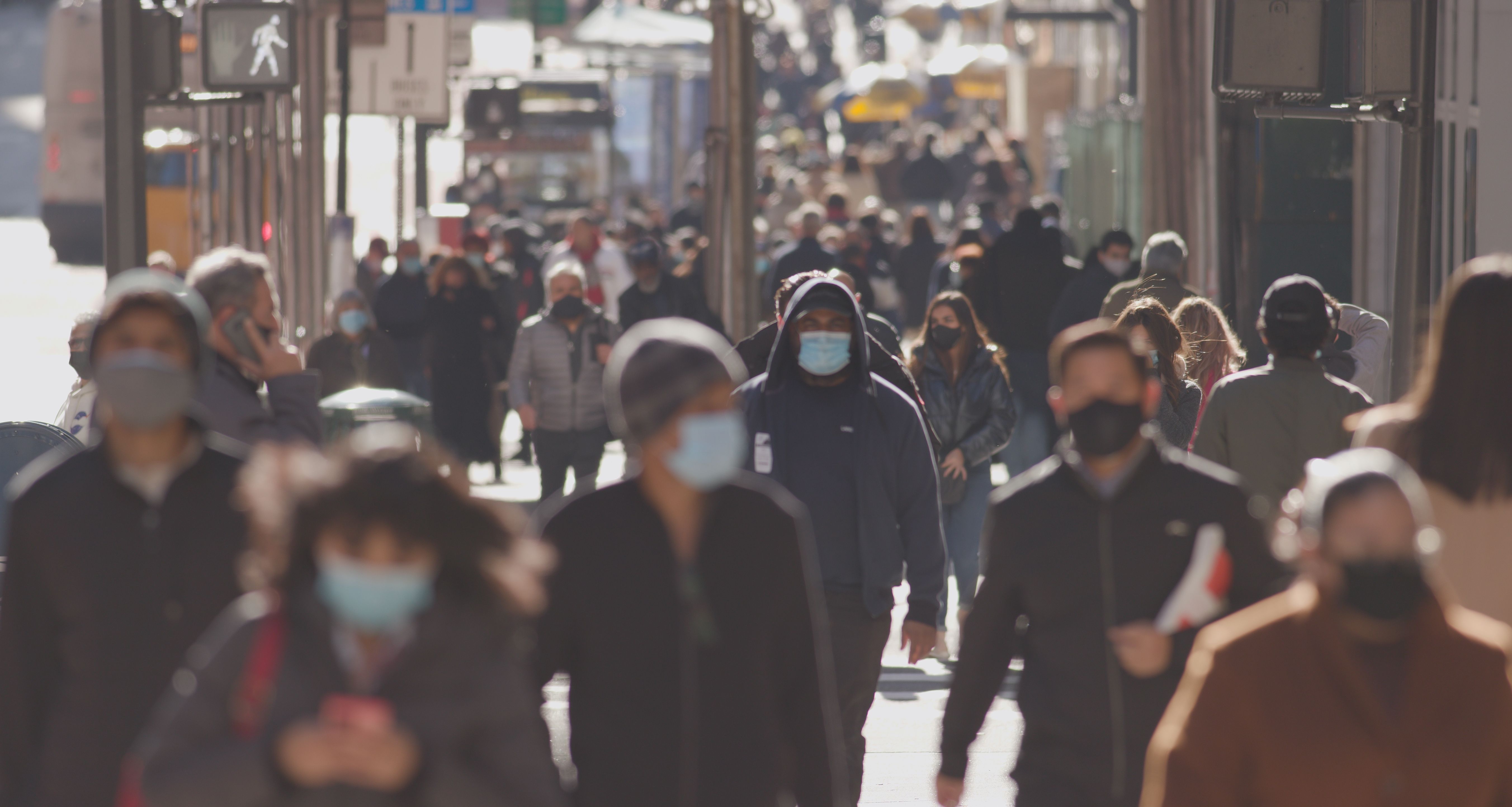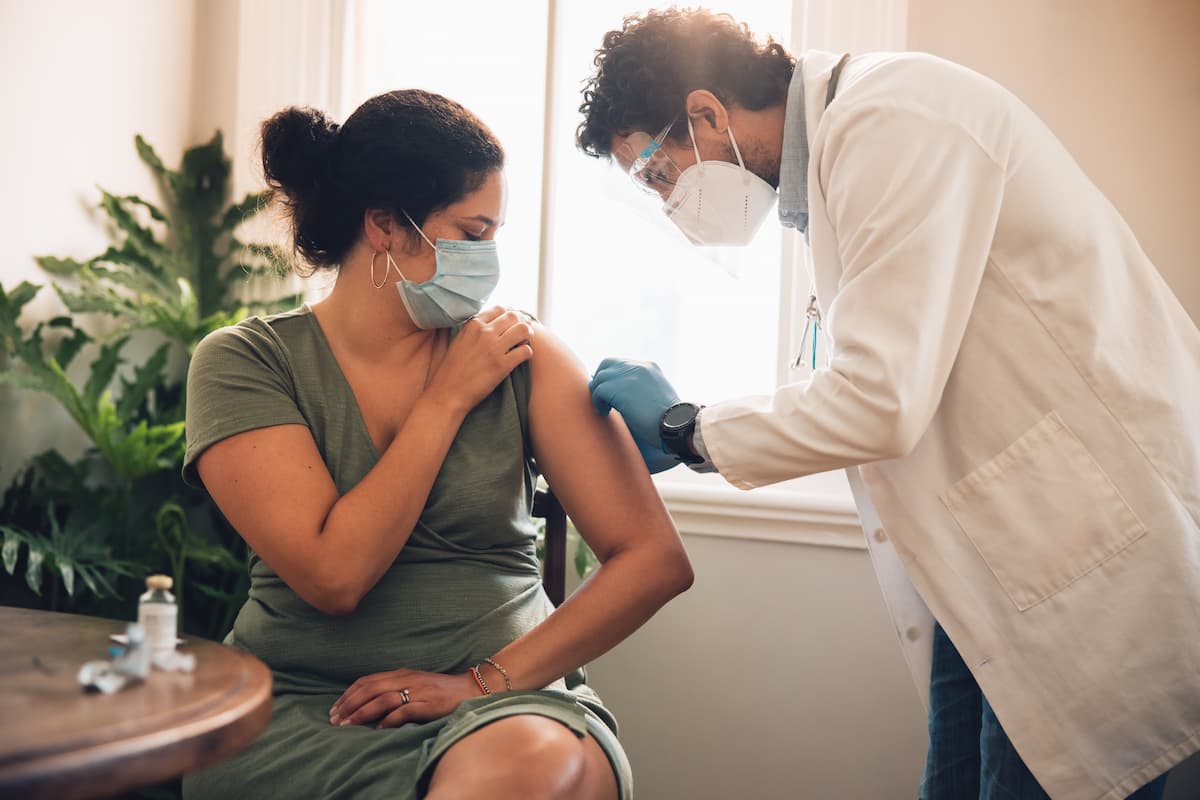
News
Article
Patients Receiving Psychiatric Care May Be at Increased Risk of Pandemic-Related Stress, But Are Not at Increased Risk of Believing in Conspiracy Theories
Author(s):
Experts emphasize the importance of awareness when using social media and make suggestions on how to combat the spread of misinformation and conspiracy theories.
The COVID-19 pandemic was associated with increased levels of distress within the general population. During this time, and particularly through the use of social media, conspiracy theories regarding masks, vaccination, and treatment spread rapidly.1,2 The authors of a study that was published in the Journal of Psychiatric Research considered patients receiving psychiatric care in various settings (inpatient, day hospital, outpatient, etc) from a hospital as a population who were at an increased risk or vulnerability for stressful events.1 The purpose of the study, according to the investigators, was to determine the mental health status of patients receiving psychiatric care in various settings during the COVID-19 pandemic, and whether there was a relationship between psychopathology, mental health status, and the belief in COVID-19–related conspiracy theories.1
Image credit: blvdone | stock.adobe.com

The study collected data from December 14, 2020, to April 28, 2021, during the second and third waves of the COVID-19 pandemic. A total of 102 participants aged 18 years or older were enrolled in the study, of which 73 were psychiatric patients (32 inpatient, 31 day-hospital patients, 9 outpatient, 1 with unknown status) and the remaining 29 were nonpsychiatric patients from St Hedwig Hospital in Berlin, Germany. Psychiatric diagnoses, according to the investigators, were made according to the International Classification of Diseases, Tenth Revision, and were extracted from patients’ current medical records.1
Additionally, a total of 24 patients were diagnosed with psychotic disorders (eg, schizophrenia spectrum disorders, affective disorders with psychotic symptoms, organic psychosis, and substance-induced psychotic disorders). The remaining patients had depressive disorders (n = 26), anxiety or stress-related disorders (n = 7), substance abuse disorders (n = 6), personality disorders (n = 5), and bipolar disorders (n = 4). There was only 1 patient without an available diagnosis.1
Patients were assessed on the following 3 conspiracy-related measures: belief in COVID-19 conspiracy theories (defined as a subset of false beliefs concerning COVID-19 claiming that multiple actors are intentionally plotting to accomplish malevolent goals); COVID-19 false beliefs (defined as believing incorrect information about the pandemic, such as the mortality rate of COVID-19 being low in comparison to the flu); and conspiracy mentality (defined as the general susceptibility to believe in conspiracy theories). To assess the belief in COVID-19 conspiracies along with common false information, the authors created 12 statements for the study, of which the approval for the statements was rated on a 5-point scale that ranged from 1 (strongly disagree) to 5 (fully agree).1
Further, patients were assessed based on different mental health indicators, including pandemic distress, depressive symptoms, general anxiety symptoms, and perceived stress. General anxiety and depression were measured using 2 subscales of the Patient Health Questionnaire (PHQ-D): the 9-item scale PHQ-9 for current depressive symptoms; and the 7-item GAD-7 scale to measure current general anxiety symptoms. Both scales utilize a 4-point scale that ranges from 0 (not at all) to 3 (nearly every day), resulting in a total score for both scales, respectively. Perceived stress was measured using the Perceived Stress Scale, which evaluates the uncontrollability, unpredictability, and overload that individual patients identify relative to their personal coping abilities. The scale includes 6 negative and 4 positive worded items which are rated on a 5-point scale that ranges from 0 (never) to 4 (very often).1
The study authors observed that patients in psychiatric care reported an increased amount of pandemic-induced distress, as well as higher rates of depression, general anxiety, and perceived stress compared with patients not receiving psychiatric care. Additionally, the authors also observed that higher pandemic stress was associated with a higher tendency to believe in COVID-19 conspiracy theories, false beliefs, and a higher conspiracy mentality, whereas higher degrees of depressive symptoms and general anxiety were not. Further, there was no observed difference between patients receiving psychiatric care who have a psychotic disorder, psychiatric patients without a psychotic disorder, and patients not receiving psychiatric care regarding the belief in COVID-19 conspiracy theories, false beliefs, and conspiracy mentality.1
The correlations between pandemic-related distress and the belief in COVID-19 conspiracy theories, false beliefs, and conspiracy mentality within the psychiatric subsample of patients—as well as the overall sampled population—were positive. In addition, the association between perceived stress and conspiracy mentality was weak, and there were no associations between conspiracy measures and general anxiety and depression scores.1
Although neither general anxiety nor depression appear to be associated with a higher tendency to believe in conspiracy theories, the results suggest that distress specifically caused by the COVID-19 pandemic is associated with a higher tendency to believe in pandemic-related conspiracy theories. According to the investigators, a previous study conducted in 2020 found that people with anxiety related directly to the pandemic—or situational anxiety—were likely to endorse political candidates who support conspiracy theories, and that general anxiety did not lead to this.1
“Contrary to hypothesis 3, we found no difference between the 3 compared groups (psychiatric patients with/without psychotic disorder, non-psychiatric patients) within their degree of believing in COVID-19 conspiracy theories, false beliefs, or conspiracy mentality. Most interestingly, patients with psychotic disorders did not differ from non-psychiatric patients and psychiatric patients with non-psychotic disorders in this regard. This finding further strengthens the notion that believing in conspiracy theories is not a result of psychosis or other mental disorders,” the study authors wrote.1
Instead, the authors discuss that believing in conspiracy theories may instead be a social factor, and doing so provides a way for individuals to better identify and fit within their social group. They note that what makes a “paranoid delusional thought” pathological is not so much its content, but instead the private character of the reality of the deluded individual. That private reality is different from society, isolating the individual.1
“Our study corroborates previous findings suggesting that psychiatric patients are an especially vulnerable group when it comes to psychological distress caused by the pandemic. Additionally, our data suggests that distress related to a specific event is associated with the degree of belief in conspiracy theories, whereas anxiety per se as found in previous studies is not,” wrote the study authors. “We found no evidence that people with psychotic disorder are more likely to believe in conspiracy theories than patients with other types of mental illness or non-psychiatric patients. Therefore, our findings do not support the notion linking psychotic disorders with the belief in conspiracy theories.”1
Conspiracy Theories and Misinformation on Social Media
Conspiracy theories and misinformation are more easily accessible with social media—which has become a major source of health information, particularly among young consumers. In some cases, health care professionals were found to have spread misinformation relating to COVID-19, particularly regarding vaccines. One study published in JAMA Network Open found that 52 physicians across 28 specialties had contributed to the spread of misinformation.2,3
In the study published in JAMA Network Open, data showed that among the 52 physicians assessed, approximately 88% held an active license in at least 1 state, 6% no longer had an active license, and 2% had active licenses in 2 states and had them either revoked or suspended in 2 other states. About 80.8% of the physicians had posted vaccine misinformation, and 76.9% had spread misinformation about multiple topics (eg, vaccines, masks, and treatment). According to the study authors, these individuals disputed vaccine safety and efficacy and the efficacy of wearing a mask and promoted medical treatments that did not have viable clinical evidence and/or approval by the FDA. These actions contributed to fear and distrust among the public.2
Experts recommend various measures that health experts, educators, parents, caregivers and others can take to help mitigate adolescents’ exposure to misinformation. Researchers from Boston University School of Public Health recommend that adolescents be taught how to recognize information that is more likely to be accurate. In addition, social media users should be informed how algorithms work, because algorithms determine what information is shown to individual users. Experts emphasize that it is important to understand the significance of conspiracy theories and misinformation relating to the COVID-19 pandemic, and that false information can affect anyone who has access to social media content.2,3
References
1. Bleier A, Seethaler M, Bermpohl F, Majić T, Mick I. Psychiatric and non-psychiatric patients during the midst of Covid-19: pandemic distress, psychosis and the belief in conspiracy theories. J Psychiatr Res. 2024;171:332-339. doi:10.1016/j.jpsychires.2024.02.006
2. Sule S, DaCosta MC, DeCou E, Gilson C, Wallace K, Goff SL. Communication of COVID-19 misinformation on social media by physicians in the US. JAMA Netw Open. 2023 Aug 1;6(8):e2328928. doi: 10.1001/jamanetworkopen.2023.28928
3. Boston University School of Public Health. Inclusive content, peer support, media information literacy can combat health misinformation spread to adolescents on social media. News release. December 11, 2023. Accessed May 16, 2024. https://www.eurekalert.org/news-releases/1010793
Newsletter
Stay informed on drug updates, treatment guidelines, and pharmacy practice trends—subscribe to Pharmacy Times for weekly clinical insights.

FDA Grants Full Approval to mRNA-1273 COVID-19 Vaccine in Children at Increased Risk

FDA Grants Full Approval to mRNA-1273 COVID-19 Vaccine in Children at Increased Risk
2 Commerce Drive
Cranbury, NJ 08512
All rights reserved.




